Trump White House axes Nasa research into greenhouse gas cuts
- Published
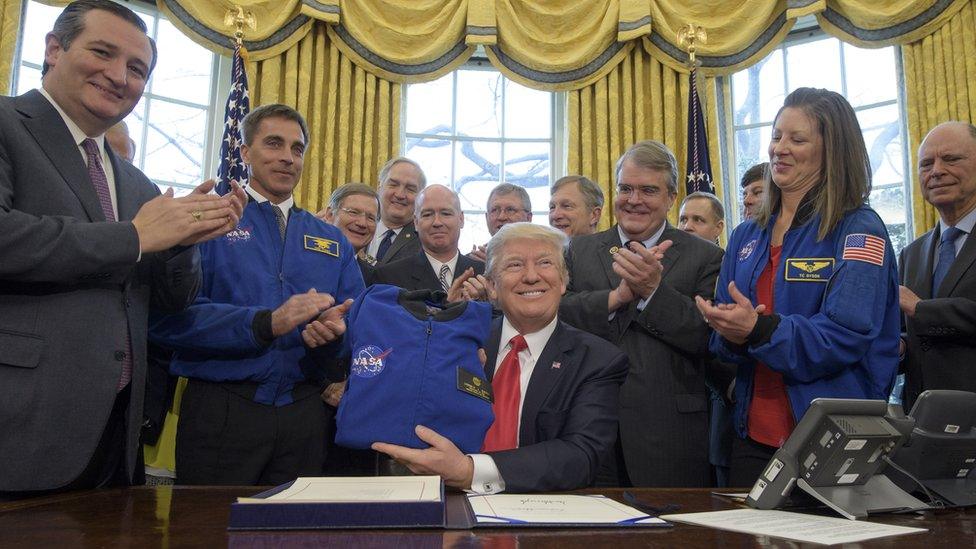
Mr Trump has repeatedly threatened funding cuts to Nasa's climate science and missions
President Donald Trump's administration has ended US space agency Nasa's monitoring system into greenhouse gases, a US journal has revealed.
The Carbon Monitoring System (CMS), a $10m (£7m)-a-year project which remotely tracks the world's flow of carbon dioxide, is to lose funding.
Science magazine reports that its loss jeopardises the ability to measure national emission cuts - as agreed to by nations in the Paris climate deal.
The US plans to withdraw from the deal.
However, until a pullout is formalised in 2020, the US continues to be part of the international climate accord.
US officials are currently in Germany as part of talks to outline a detailed rule book for the 2015 Paris agreement. They are reportedly insisting on strong rules for reporting and monitoring greenhouse gas emissions.
The country's environmental policy has shifted under a Trump administration, which wants to bolster the US's fossil fuel industry.
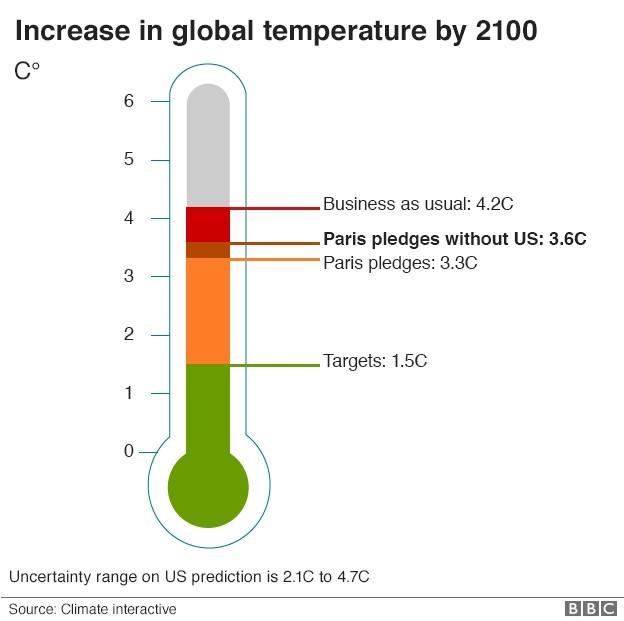
Mr Trump has repeatedly threatened Nasa's earth science budget and other climate missions. In March, a spending deal signed in Congress omitted mention of CMS, effectively killing future US research into verifying greenhouse gas emission cuts.
"If you cannot measure emissions reductions, you cannot be confident that countries are adhering to the agreement," energy and environment professor Kelly Sims Gallagher told the journal.

Making cheating easy
By Matt McGrath, Environment correspondent in Bonn, Germany
Accurately measuring emissions of carbon dioxide has been one of the major challenges for UN negotiators since concerns over climate change first manifested in the 1990s.
Right now most countries produce annual estimates based on working out how much fuel is used in transport, energy and industry. These are often wildly inaccurate, making cheating easy.
Attempts have been made to develop space and aircraft-based systems and Nasa's CMS is perhaps the most advanced.
The development of CMS has helped the US and other developed countries put pressure on emerging economies like China to agree to strong systems to monitor, record and verify their emissions - something that China and India have strongly resisted.
The cancellation of the CMS system will be seen here in Bonn as a weakening of the chances of developing a robust and transparent emissions monitoring system - something that many see as critical in building trust for the future of the Paris climate agreement.

Nasa's CMS has supported dozens of research projects since 2010 to make sense of monitoring and measurements of the world's carbon dioxide and methane through satellite and aircraft instruments.
It has also helped countries assess their carbon emissions from deforestation and forest degradation.
Nasa says that not all carbon monitoring and measuring will be lost with the end of CMS.
Steve Cole, a Nasa spokesman, told the BBC: "The winding down of this specific research programme does not curb NASA's ability or commitment to monitoring carbon and its effects on our changing planet."
"In fact, Gedi, a new ecosystem carbon-monitoring instrument, is set to launch to the International Space Station this summer."
Getting Gedi, the Global Ecosystem Dynamics Investigation laser system, into orbit is listed in Nasa's 2019 budget request, even though the programme is called a CMS mission, according to the agency's site.
Notably, the agency's 2019 request, external specifically mentions termination of CMS.
Nasa's budget overview says the agency's new fund allocation "refocuses existing Nasa activities towards exploration, by redirecting funding to innovative new programmes and providing additional funding to support new public-private initiatives".
Rachel Licker, a senior climate scientist at the Union of Concerned Scientists, told the BBC that ending CMS - even if some existing projects continue - is a cause for concern.
"In the long-term, dismantling the Carbon Monitoring System will adversely affect our ability to track flows of carbon through our land, oceans, and atmosphere," Ms Licker said.
"Being able to better track carbon is critical to evaluating efforts and policies aimed at limiting global warming and its impacts."
With repeated talks of a space force and sending astronauts back to the moon, Mr Trump appears to favour space missions over earth science.
Leadership in the field of carbon monitoring will likely pass to Europe, which has one carbon-monitoring satellite of its own and more to come.
And the scientific shift to Europe may have already begun.
In December of last year, French President Emmanuel Macron lured 13 US climate scientists to France by way of a "Make Our Planet Great Again" project, awarding $70m in research grants.
- Published9 October 2017
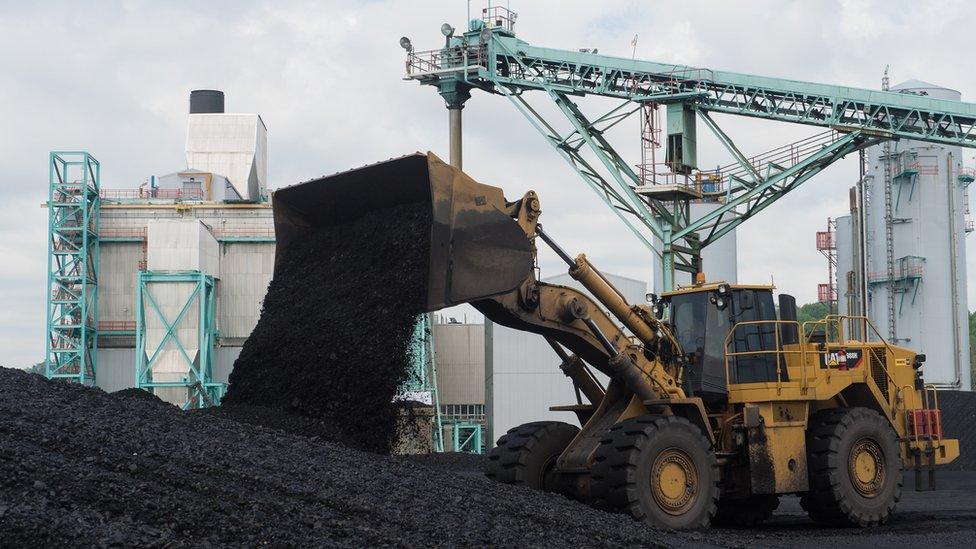
- Published8 August 2017
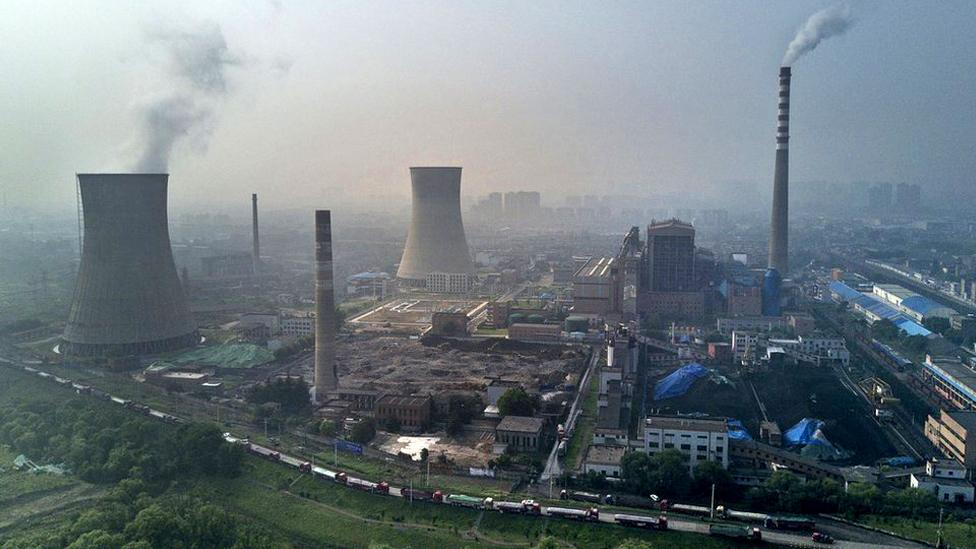
- Published1 June 2017
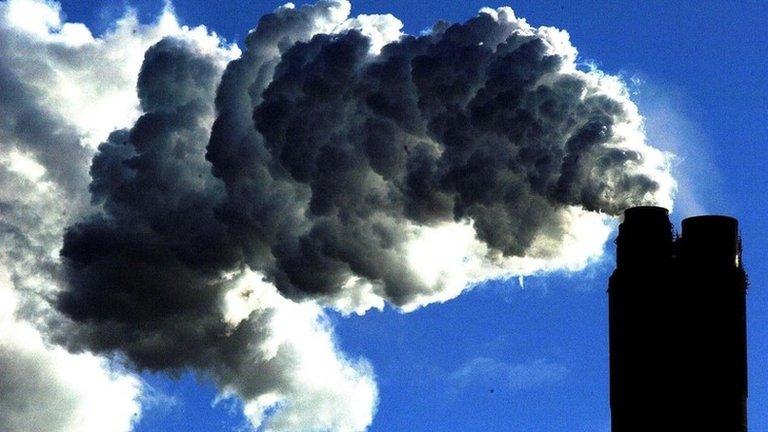
- Published21 January

- Published31 May 2017